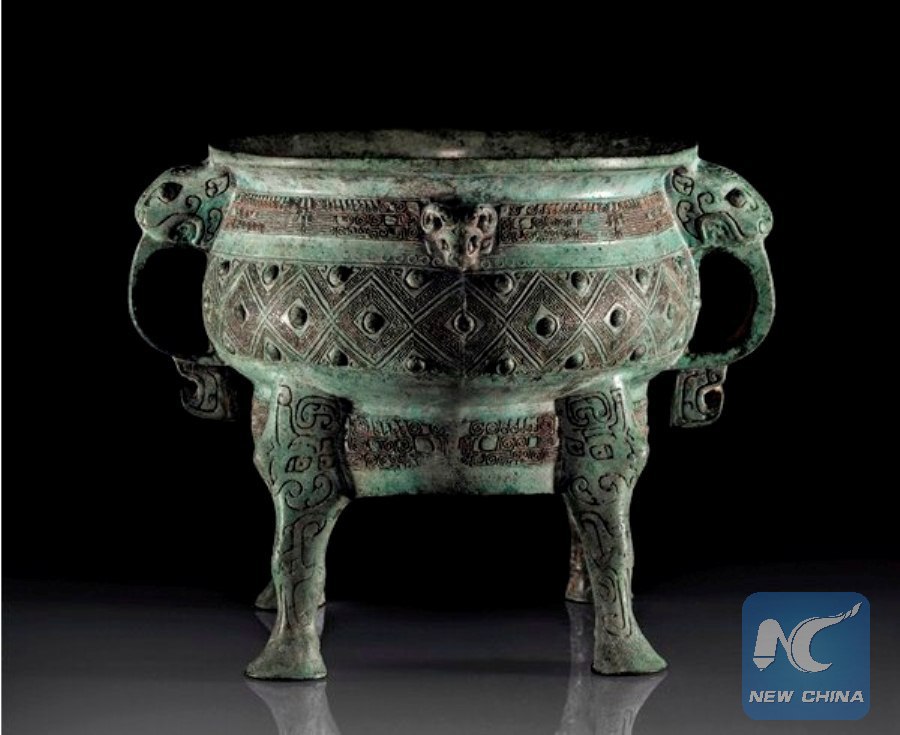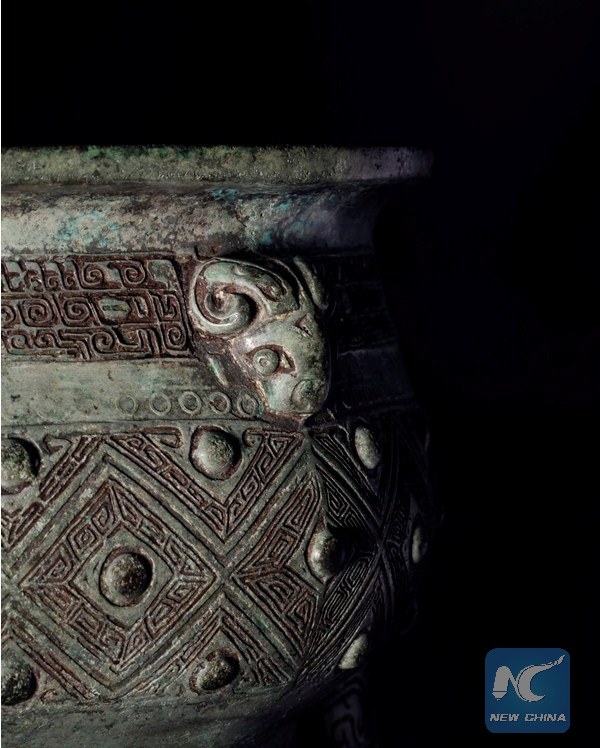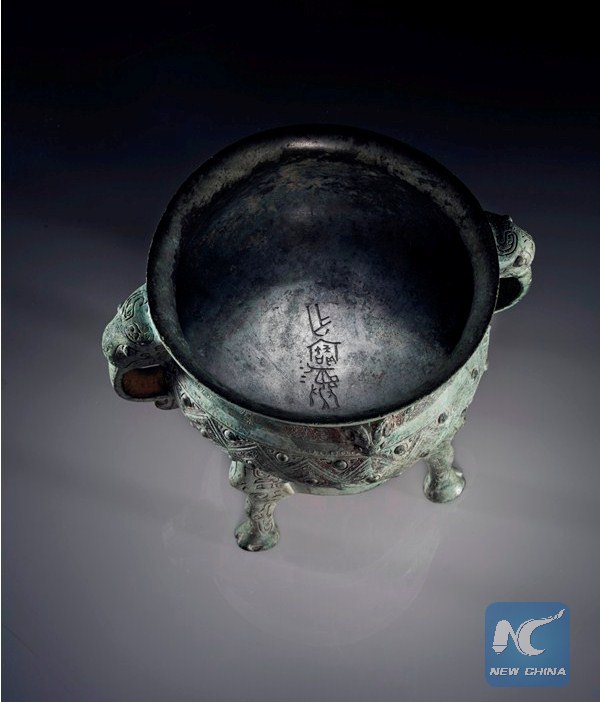
Zuo Bao Yi Gui, a ritual food vessel dating to early Western Zhou Dynasty (11th-10th century B.C.). (CREDIT: CHRISTIE'S IMAGES LTD. 2018)
NEW YORK, Sept. 7 (Xinhua) -- A rare Chinese bronze ritual food vessel dating to early Western Zhou Dynasty (11th-10th century BC) will be featured in a stand-alone sale during Christie's Asian Art Week.
The vessel, named Zuo Bao Yi Gui is prized for its unique form and exceptional provenance. It was once in the collection of China's Qianlong emperor of Qing Dynasty, and was published in a catalogue of bronzes in the imperial collection which was commissioned by the emperor and printed in 1755.

Zuo Bao Yi Gui, a ritual food vessel dating to early Western Zhou Dynasty (11th-10th century B.C.). (CREDIT: CHRISTIE'S IMAGES LTD. 2018)
The vessel's presale estimate is 4 million U.S. dollars to 6 million dollars.
Only six other archaic bronzes from the Qianlong emperor's collection are known to be in private hands today.
The Asian Art Week, lasting from Sept. 7 to 14, is consist of a series of auctions, viewings, and events.
This season at Christie's presents eight distinct auctions featuring over 900 lots spanning all epochs and categories of Asian Art form Chinese archaic bronzes through contemporary Indian painting.

High-angle shot of Zuo Bao Yi Gui, a ritual food vessel dating to early Western Zhou Dynasty (11th-10th century B.C.). (CREDIT: CHRISTIE'S IMAGES LTD. 2018)
Apart from the Zuo Bao Yi Gui, there are three other thematic auctions that are worth exploring. "Masterpiece of Cizhou Ware: The Linyushanren Collection, Part IV" is the fourth auction of a sale series of rare Chinese ceramics from an important private Japanese collection. "Fine Chinese Jade Carvings from Private Collections" presents a range of jades from five collections.
"The Ruth and Carl Barron Collection of Fine Chinese snuff Bottles: Part VI" features over 150 snuff bottles in a variety of materials including jade, porcelain, gold and agate.
Additional highlights across Chinese work of art include two early Tang Dynasty limestone Bodhisattvas.

